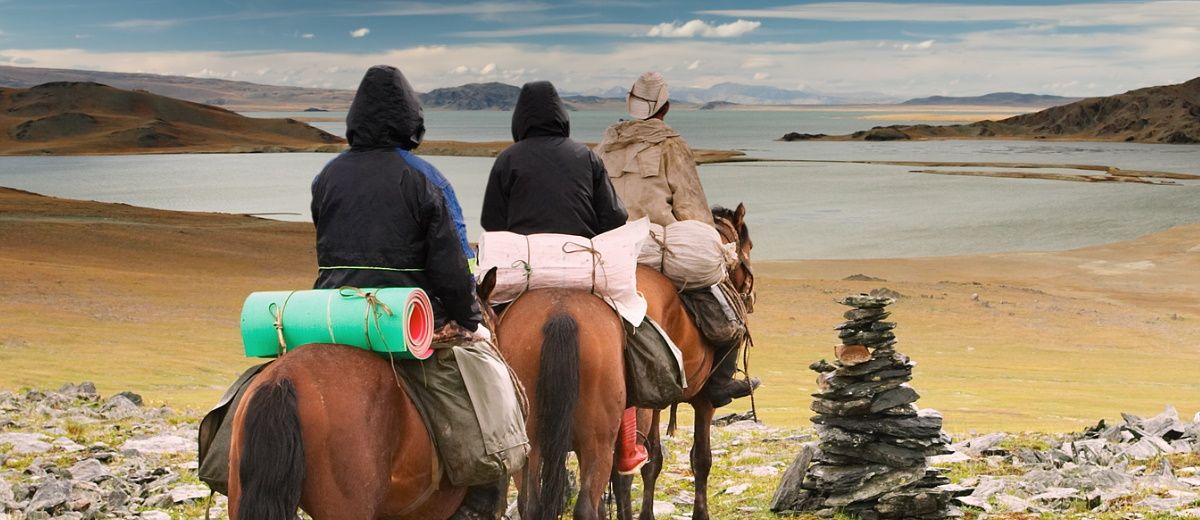An Interview with Mark & Tammy Siekbert

Mark, for those that don’t know you well, can you give us somebackground information on you and your family, and how God led you to the place where you serve today?
Mark: The most important day of my life was at the age of 15, when I accepted Christ as my Savior. I was raised at FBC. My parents are Jim and Judy Siekbert. I had the great privilege of being raised in a great Christian home. My parents are the main reason that I am in fulltime Christian service today. It was very comforting to have consistency in our home. What was preached at church became the way of life at home. There was great respect for our pastor and the leadership of the church. I was taught that serving the Lord should be first place.
After graduating from MCA, I had no intention of going into the ministry, but God had different plans. The Lord used Africa to burden my heart for the mission field. I graduated from School of the Scriptures in 1988 and started deputation. The Lord later closed the door for Tammy and I in Africa. At the time, I didn’t understand, but the Lord uses so many things to prepare us for the service He would have us to do. Through a trip to Mexico, the Lord burdened my heart to go there. After 11 years of service in Mexico, Tammy and I began to pray for God to show us a place of great need. The Lord led us to work in the far northern region of Mongolia among the herders. We now live in one of the largest Shaman areas of the world.
How are you doing adjusting to the culture in Asia?
Mark: It can be very hard to learn to live in another culture. The culture here in Khatgal is different than the culture in the capital. In the city there is no such thing as personal space. It is a very small city in terms of land area, with a lot of people crammed in. There is a lot of pushing and shoving. Out here in the countryside, life is very laid back. It’s a little too laid back for our American, hurry-up kind of attitude. Even the simple tasks in life take much time. The hardest thing to get used to is being cheated. I imagine that is a common problem for most Americans living on foreign soil, but here it is actually a part of the culture. It isn’t just the American that they will cheat, but it extends to each other as well. It is actually in their history books and folk tales. It is hard for Americans to leave behind their native culture and adjust to a new one.
What has been the most difficult part of that adjustment?
Mark: I would say that the most difficult part is that a person’s word is not trustworthy. I am working on our cabin and have had a very frustrating time even ordering wood. Having the order ready when it is supposed to be and actually be what you ordered is not very likely. Sometimes the order has gone to someone else and you are starting all over again. Flexibility is now a big part of my vocabulary!
Is there anything that you found surprisingly easy to adjust to?
Mark: I truly enjoy the simple life style. No one is concerned about what time it is, if the next person is wearing the current fashion or not, or who owns what. We have also found many similarities in culture between the herders and the Huichol Indians that we worked with in Mexico.
What is the most influential religion in the area you are working, and what unique challenge does that present?
Mark: For many years, Shamanism was the main religion in Mongolia. They later adopted Buddhism because it represented a more organized religion, with a leader, but made a smooth transition because it works about the same. The challenge is that the people here have seen Satan’s power first-hand. Satanic worship is openly practiced here on a daily basis. They have seen Satan’s power and it is our job to show them that God is the ultimate power and can save them from their sins. It isn’t an easy task to convince someone that their religion and beliefs are sin.
What have you found to be the most effective tool to evangelize the people group you are working with?
Mark: I believe that the most effective way to reach this people group, as well as others, is by Christ’s example. Christ went out and chose 12 men that He poured His life into. Through 11 of those men, and the men that they reached, the Gospel was able to be spread. If I can reach and teach one to reach and teach one, then two are being reached and taught to reach and teach. This seems to be time consuming, but it will be the most effective way to reach a people group that are nomadic. So many are “evangelized” many times over by people with good intentions, but they want to see it in action, see that it works and is worth giving up the only way they have known for their entire lives. It isn’t a fast process with overnight success. Satan’s presence here is strong and real. He has had a hold on the people of Mongolia for many years.
In what ways do you minister to the people, and what are some of the goals you have set for yourself?
Mark: We are new to this field, so we are in the beginning stages. We are getting our home set up and learning the language. I am building relationships with men that I work with, giving them a chance to see that I am a real person and to be able to ask me why I am here. As they begin to see a difference in the way that I do business and conduct myself in my day to day life, they are curious and begin to seek answers. We begin with a few that begin to reach their families and friends. From these we will find a few that are ready to begin to be taught to do what we are doing. Then we have nationals reaching nationals.
How has the global economic situation affected your part of Asia?
Mark: As one would assume, the economic problems have reached this side of the world. Just since our survey trip the prices of things have doubled. Jobs are hard to find, therefore, it is hard to teach about giving. The average worker in the countryside takes home about $7 per day.
If I may, I’d like to ask Tammy how you are adjusting to this Asian culture?
Tammy: I like it much better now that we are out in the countryside. There is a lot more room for each person to breathe and move around. In the city it was crazy - crowded, people pushing and shoving, traffic jams that lasted for hours. I think my most memorable experience was in the grocery store. Mark walked away to get something and I thought that I had found an out of the way place to wait for him. All of a sudden someone had me by the shoulders from behind and was turning me around in a complete circle so that they could get by. It makes a person want rear view mirrors just to go grocery shopping!
How do you involve yourself in the ministry with Mark?
Tammy: My way of involvement at this early stage of the ministry is mostly done at home. We are currently the biggest attraction in town. Anyone that needs a job, money, medicine, or even a doctor shows up at our door. There are many other visitors just out of curiosity. I can best be effective by opening my home, caring, listening to problems, answering a multitude of questions, and even playing nurse from time to time. By sharing our lives with them we can then begin to share Christ with them.
This question is for both of you. Mark, what advice would you give a missionary that is preparing to serve in Asia? And Tammy, what advice would you give to a wife of a missionary preparing to serve in Asia?
Mark: Prepare for the unexpected. Be willing to re-think your original goals and plans once you arrive and get a good feel for how things really are. When preparing a container you should think of things that will make a home. A good bed is something that is nearly impossible to find in other countries. Make sure that getting set up in a home where your wife can function, take care of her family, and feel safe is a first priority. It is a good thing for your wife to be able to communicate with family and friends back home.
Tammy: Be prepared spiritually. If you are close to the Lord and walking with Him, it makes all of the hard times so much easier. It isn’t easy being away from home, from your family, but God can give comfort beyond compare. He loves us and wants us to succeed.
Again, I would like for both of you to answer this question. How can your home church encourage you and other missionaries on the field? Tammy, you go first.
Tammy: For me, the most encouraging thing is communication. Just an email or note from home can really brighten my day. Being this far away from the States and all of the things that make cooking easier and help brighten our days, a package from home is very encouraging. I’m sure that families with small children would be especially happy to receive goodies from home.
Mark: Knowing what is going on at home, even the little things, is a great encouragement. We have two supporting churches that send us an update on how things are going at the church and that is nice. We can know better how to pray for the church and the pastor.
What are the greatest prayer needs you have for yourselves and the ministry? Keep in mind that this article will not be read until a few months from now.
Mark: I really pray that we are in our house by the time that you are reading this article. Next on our list would be the language and a vehicle. Nothing is close by, so we really need a vehicle.
Tammy, do you have anything you would like to add?
Tammy: Right now, just for the Lord to allow us to have a great love for the people here.
One last question. What would you like to say to your home church and your other supporting churches, that perhaps we didn’t cover in this interview?
Both: Thank you all for making it possible for us to be here. We truly appreciate your love and prayers, as well as financial support. We love and pray for you all.






